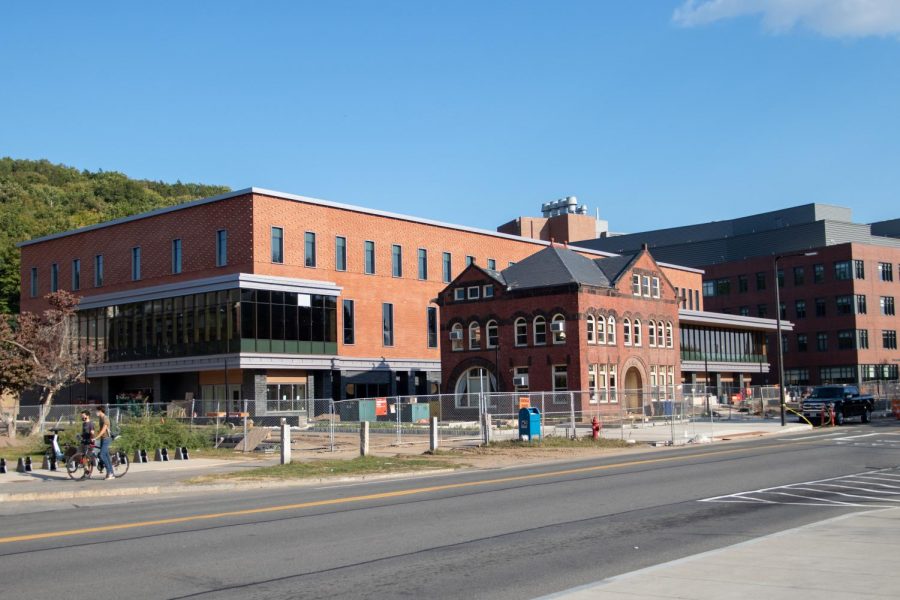The Town of Amherst originally feared it would have a shortage of poll workers for the 2020 Presidential Election. This worry has morphed into a remarkable response of youth voter engagement.
“For every older poll worker, there has been a younger poll worker wanting to help,” said Susan Audette, acting town clerk and town elections manager.
At the same time, advocacy for youth voting and volunteering is at an all-time high, a result of voter education campaigns headed by the town government and University of Massachusetts alike.
In normal years, poll workers tend to come from an older demographic. But this time around, older individuals are at an increased risk of contracting COVID-19 and are instructed to limit contact with others.
Concerns about staffing have especially plagued small towns across the United States, leading polling places to lean on the shoulders of younger generations, whose availability and willingness to volunteer on Election Day could be critical to handling the voting process.
The younger generation in Amherst have gladly taken the job. According to Audette, interest in working the polls has been notably high. “We have many potential workers now on stand-by as there are more workers than spots to fill,” she said.
Amherst Town Council President Lynn Griesemer has also observed youth engagement.
“We’re very pleased to have younger people, particularly the student population and other younger people from Amherst being willing to step up, understanding that many of our long-time poll workers really don’t feel safe working the polls, although many of them have continued to show up and work for the polls as well,” Griesemer said.
“It’s an interesting mix, it’s a good mix, and it shows that the community as a whole is working with us, both youth and long-time poll workers,” she continued.
Youth engagement may not be the only thing to increase this year. Voting in Amherst seems to also be on the rise. In the 2016 presidential election, Amherst saw a roughly 68 percent voter turnout, with 10,484 read ballots. Early and absentee requests for 2020 are already almost equal to 2016’s total number of ballots.
“We are already double the number of early ballots for this election,” Audette said.
She is additionally working on voter education and hopes to inform students and residents of their democratic power. As a part of her goal, Audette gave a presentation on voter education via Zoom on Oct. 5.
“I’m hoping to broadly reach a large sector of young voters to educate them on being ready to vote in the hopes of alleviating any potential problems beforehand,” she said.
Like Audette, Sonya Epstein, UMass’ Student Government Association president, is trying to engage and involve students in this year’s election.
Last semester, as the SGA secretary of University policy and external affairs, Epstein organized an on-campus voting station staffed with students and Amherst residents. Starting conversations early on, meeting with University administrators and deciding on an accessible conference room in Bartlett Hall were amongst various logistics Epstein dealt with.
The nature of COVID-19 means that there will be no on-campus voting this semester, though Epstein will be using their platform to encourage student voter participation.
“I want to make sure that the SGA is doing everything possible to do this education on social media, that’s a really big way that we’re engaging with students right now,” they said.
Regardless of the year or election, Epstein believes engaging students in voter education is crucial. With different political engagement than in high school, and many first-time voters, Epstein feels a responsibility to both educate students and make the voting process as simple as possible by destroying barriers that decrease voter turnout, they said.
“Facilitating anything possible to take away those extra steps and any confusion just seemed really important because it raises those numbers so much,” Epstein said. “Especially with students who come from communities where there’s a lot of voter suppression, where they have been underrepresented by the government so often, it’s important to see how we can help every single student engage.”
Epstein believes, however, that voter education doesn’t stop once the election is over, and they want the SGA to help the University address the repercussions of the upcoming election results. They believe that the intense focus of this election will elevate student reactions in its aftermath, compared to the primary elections last semester. If nothing else, Epstein wants students to take action in every way they are able.
“[I’m] urging students to not only get out and vote, but volunteer if they can, to educate others around them, and to use their freedom of speech and speak up around these really important issues.”
Ella Adams can be reached at [email protected].




















